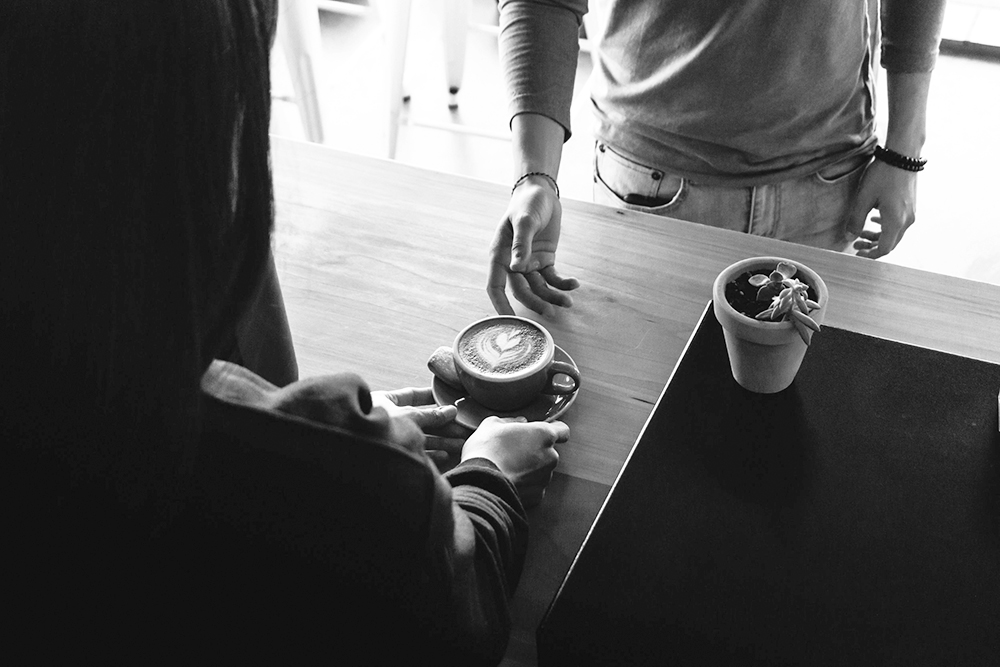
From the arrival of Italian immigrants post-World War II to the rise of the Australian barista, coffee has woven itself into the fabric of Australian society, shaping social interactions and lifestyle choices, says My Office Coffee spokesman Tom Bee.
In the bustling streets of Melbourne or the sunny lanes of Sydney, one can’t help but notice Australians’ deep affection for coffee. It’s not merely about the caffeine jolt; it’s a cultural phenomenon steeped in history and tradition.
From the arrival of Italian immigrants post-World War II to the rise of the Australian barista, coffee has woven itself into the fabric of Australian society, shaping social interactions and lifestyle choices, says My Office Coffee spokesman Tom Bee.
“The roots of Australia’s coffee culture stretch back to the mid-20th century when Italian immigrants played a pivotal role in shaping Australia’s coffee culture by introducing their rich coffee-making tradition Down Under,” says Tom.
Initially dominated by tea, the Australian hot beverage scene transformed with the introduction of espresso bars and the meticulous craftsmanship of Italian immigrants. The espresso machine became a catalyst, fuelling Australia’s journey towards becoming a global coffee powerhouse.
“Italian immigrants didn’t just bring coffee to Australia; they brought a sense of community,” says Tom.
“Espresso bars became more than places to grab a quick caffeine fix; they became social hubs, where connections were forged over a perfectly brewed cup. The Italian emphasis on quality and craftsmanship set a high standard for Australian coffee, distinguishing it on the global stage.
“For Australians, coffee is more than a drink; it’s a way of life. It’s the aroma that fills the air of their favourite local café, the comforting warmth of a cup shared with friends, and the dedication to quality that drives their pursuit of the perfect brew. Coffee shops aren’t just places to grab coffee; they’re vital community hubs where relationships are nurtured and ideas are exchanged.”
Tom says that at the heart of Australia’s coffee culture is the Australian barista.
“Far from being mere coffee makers, they are artisans, meticulously trained in the craft of coffee-making,” he says. “Their expertise has not only elevated the coffee experience within Australia but has also garnered international recognition, with Australian baristas frequently topping global competitions.
“As Australia’s coffee scene evolves, it embraces global trends towards specialty coffee and ethical production. Australians’ refined palates seek out unique flavours and artisanal practices, while their commitment to sustainability drives demand for ethically sourced beans and eco-friendly practices.
“While Australians enjoy their coffee culture, they also recognise the importance of moderation and health awareness. Public campaigns educate consumers about the benefits of moderate consumption while highlighting the risks of excess, ensuring that Australians can savour their coffee with both pleasure and prudence.”
Australia’s love affair with coffee is a testament to its rich cultural tapestry, its dedication to quality, and its sense of community.
“From the Italian immigrants who brought espresso to its shores to the modern-day baristas crafting specialty brews, coffee has become ingrained in the Australian way of life,” Tom says.
“So, the next time you enjoy a cup of coffee in Australia, remember that you’re not just drinking a beverage; you’re experiencing a tradition that spans generations and continents, one that celebrates craftsmanship, community and the simple joy of a well-brewed cup of coffee.”
Steaming Through the Scene: Coffee Culture In Australia — My Office Coffee
Who can be trusted?
In a world of spin and confusion, there’s never been a more important time to support independent journalism in Canberra.
If you trust our work online and want to enforce the power of independent voices, I invite you to make a small contribution.
Every dollar of support is invested back into our journalism to help keep citynews.com.au strong and free.
Thank you,
Ian Meikle, editor





![For graphic designer Tracy Hall, street art is like any artwork, her canvas has been swapped out for fences and plywood, her medium changing from watercolours to spray paint.
A Canberra resident for 13 years, Tracy has been a street and mural artist for the past five.
Her first exploration into grand-scale painting was at the Point Hut toilets in Banks five years ago. “They had just finished doing up the playground area for all the little kids and the words [of graffiti] that were coming up weren’t family friendly,” she says.
“So I ended up drawing this design and I got approval for the artwork.”
Many of Tracy’s time-consuming artworks are free, with thousands of her own dollars put into paint.
@traceofcolourdesigns
To read all about Tracy's fabulous street art, visit our website at citynews.com.au or tap the link in our bio! 🎨🖌
#canberranews #citynews #localstories #canberrastories #Citynews #localnews #canberra #incrediblewomen #journalism #canberracitynews #storiesthatmatter #canberralocals #artist #streetart #streetartist #StreetArtMagic](https://scontent.cdninstagram.com/v/t39.30808-6/490887207_1225841146218103_6160376948971514278_n.jpg?stp=dst-jpg_e35_tt6&_nc_cat=106&ccb=1-7&_nc_sid=18de74&_nc_ohc=1BXnbxXvf_8Q7kNvwGxh1zh&_nc_oc=Adkh3RxuUkrP0SYqfZ05hihf5KR4C5x0esctcQMhxNfh7FjQpPqh6aJiWWGR5JJn29Y&_nc_zt=23&_nc_ht=scontent.cdninstagram.com&edm=ANo9K5cEAAAA&_nc_gid=bc5VNvDhYOIIxj_8987s9g&oh=00_AfEtHUphIOc-eNhp4zJN5_aXoxpcCNHMu1_2G0RcVzo9Jw&oe=680ED7D4)


Leave a Reply